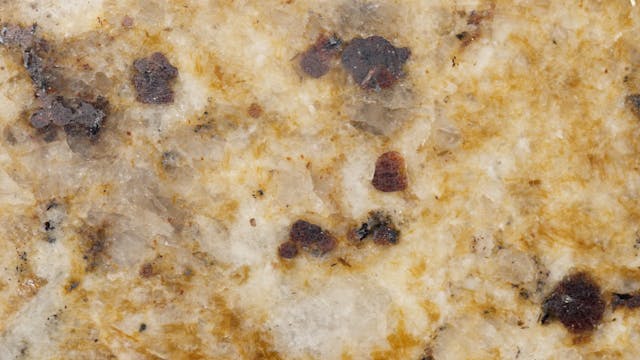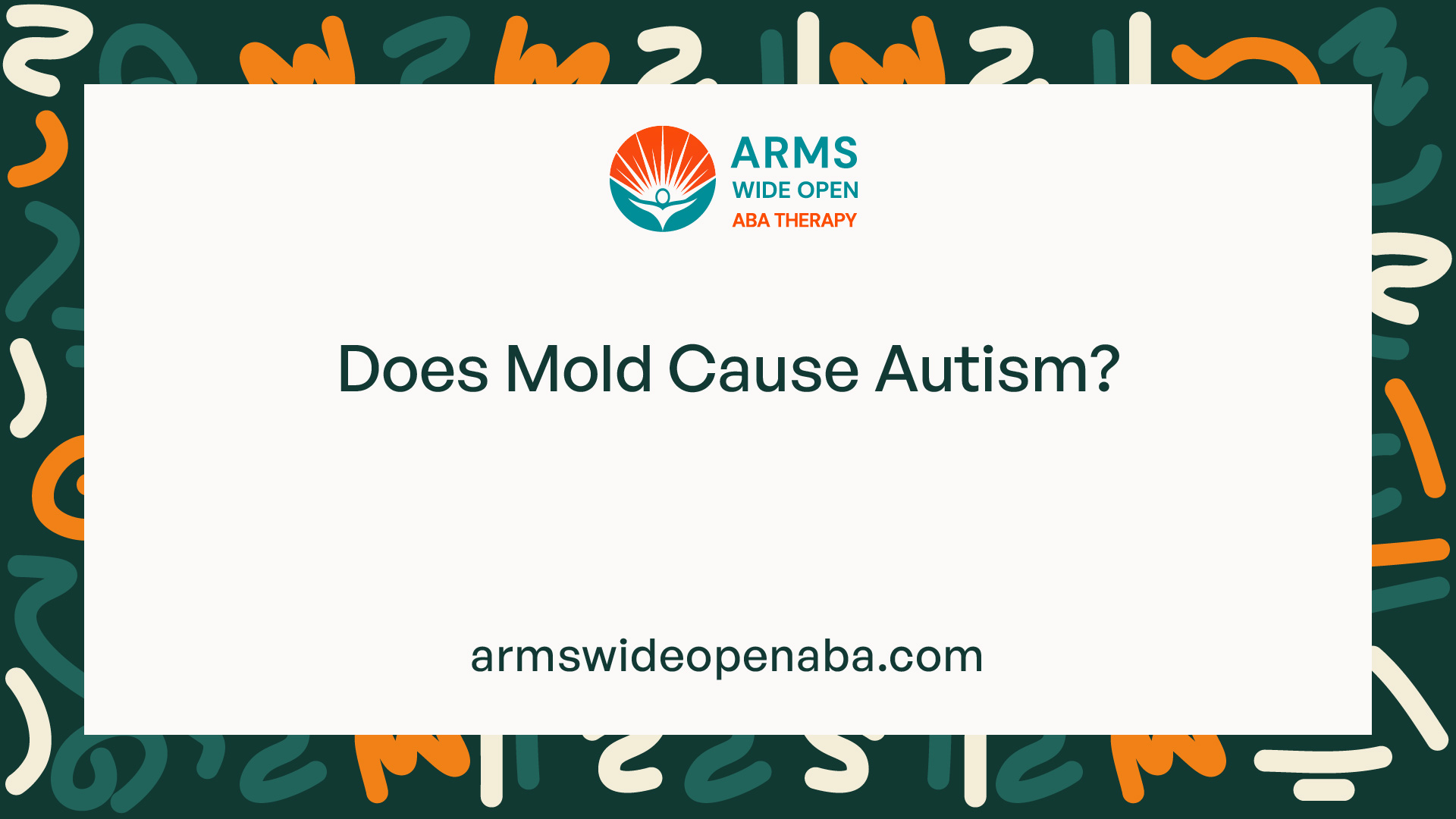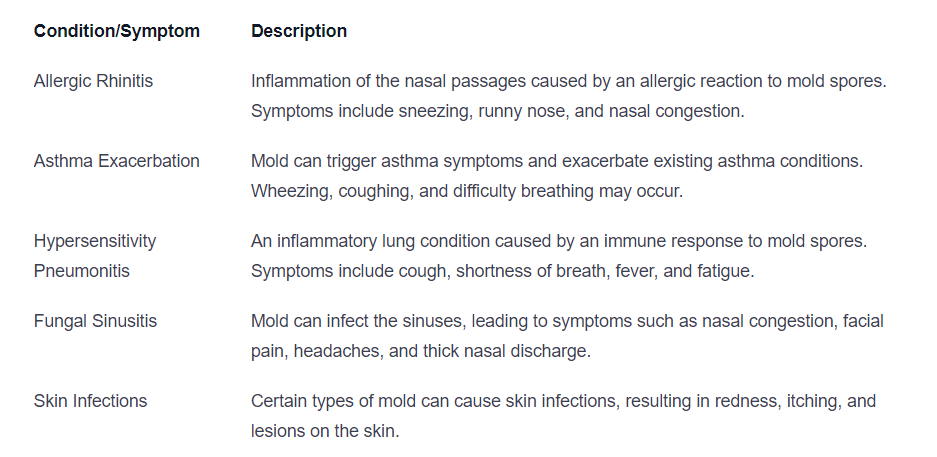Does Mold Cause Autism?
Unveiling the mold-autism controversy: Separating fact from fiction. Discover what science says about mold and autism.

The Mold-Autism Controversy
When it comes to the connection between mold and autism, there has been ongoing debate and controversy. While some individuals and studies have suggested a potential link, it is important to examine the claims and understand the scientific perspective.

Understanding the Connection Between Mold and Autism
Some theories propose that exposure to mold, particularly certain types of mold known as mycotoxins, may contribute to the development of autism spectrum disorder (ASD). It is suggested that these toxins, when inhaled or ingested, can affect the neurological and immune systems, potentially leading to the onset or exacerbation of autism symptoms.
The idea behind this theory is that mold exposure may trigger inflammation and oxidative stress in the body, which could influence brain development and function. However, it is essential to note that this connection is still a subject of scientific investigation and has not been conclusively proven.
Examining the Claims
To better understand the mold-autism controversy, scientific studies have been conducted to evaluate the potential link between mold exposure and the risk of developing autism. However, it is important to consider the limitations and inconsistencies in the available research.
Overview of Scientific Studies
Several studies have explored the relationship between mold exposure and autism, but the findings have been mixed. Some studies suggest a possible association, while others have found no significant evidence to support this connection.
It is worth noting that these studies often rely on self-reported measures of mold exposure or have small sample sizes, limiting the generalizability of the findings. Additionally, research in this area is challenging due to the complexity of autism as a multifactorial condition with various genetic and environmental influences.
Lack of Consistent Evidence
At present, there is no consistent scientific evidence to definitively support the claim that mold exposure directly causes autism. The Centers for Disease Control and Prevention (CDC) states that there is currently no conclusive evidence linking mold exposure to autism or other neurodevelopmental disorders.
It is important to approach the mold-autism controversy with caution and rely on scientific consensus. While mold exposure can have detrimental effects on health, including respiratory problems and allergies, the direct association with autism remains uncertain.
As research continues to advance, it is crucial to consider various factors that contribute to the development of autism. Genetic factors, environmental influences, and other potential causes play significant roles in understanding and managing autism spectrum disorder.
Examining the mold-autism controversy in a balanced and evidence-based manner can help individuals make informed decisions about their health and well-being.
Mold and Autism: What Science Says
When it comes to the connection between mold and autism, it is essential to examine the existing scientific studies and evidence. While concerns have been raised about a potential link, it is important to approach this topic with a critical eye and rely on the most up-to-date scientific research.
Overview of Scientific Studies
Numerous studies have been conducted to investigate the possible relationship between mold exposure and autism. These studies have explored various aspects, including the impact of mold on prenatal development, early childhood exposure, and the potential association between mold-related illnesses and autism.
However, it is important to note that the majority of these studies have not found consistent evidence to support a direct causal link between mold exposure and autism. The scientific community acknowledges that more research is needed to fully understand the complex factors contributing to the development of autism.
Lack of Consistent Evidence
While some studies have suggested a potential association between mold exposure and autism, the evidence remains inconclusive. Many of the studies suffer from limitations, such as small sample sizes, lack of control groups, and the inability to establish a clear cause-and-effect relationship.
It is worth noting that autism is a complex neurodevelopmental disorder with multifactorial causes. Genetic factors, environmental influences, and a combination of various risk factors are believed to contribute to the development of autism. Mold exposure, if any, may be just one of the many factors that can potentially interact with genetic predisposition and other environmental factors.
To date, there is no definitive scientific consensus that firmly establishes a causal relationship between mold exposure and autism. It is important to rely on scientifically rigorous studies and consult with medical professionals or experts in the field for a better understanding of this topic.
By staying informed about the current state of scientific research, we can have a more accurate and evidence-based understanding of the mold-autism controversy.
Factors to Consider
When exploring the potential connection between mold and autism, it's important to consider various factors that could contribute to the development of autism spectrum disorder (ASD). While there have been claims suggesting a link between mold exposure and autism, it is essential to examine other factors that play a role in the development of ASD. These factors include genetic factors, environmental factors, and other potential causes of autism.
Genetic Factors
Research has shown that genetics plays a significant role in the development of autism. Numerous studies have identified specific genes and genetic mutations that are associated with an increased risk of autism spectrum disorder. It is important to note that these genetic factors are not related to mold exposure. Genetic susceptibility is thought to contribute to the vulnerability of certain individuals to develop ASD, regardless of their exposure to mold.
Environmental Factors
While the impact of environmental factors on autism is an area of ongoing research, it is crucial to understand that mold exposure alone is unlikely to be a direct cause of autism. Environmental factors, such as prenatal exposure to certain chemicals or toxins, maternal infections during pregnancy, and complications during birth, have been identified as potential contributors to the development of autism. Mold exposure may be one environmental factor among many, but it is not the sole cause of autism.
Other Potential Causes of Autism
Autism is a complex neurodevelopmental disorder, and researchers continue to investigate the various factors that may contribute to its onset. Some other potential causes being explored include:
- Neurological Factors: Differences in brain structure and function have been observed in individuals with autism. Researchers are studying how these neurological factors may contribute to the development of ASD.
- Immunological Factors: Immune system dysregulation and abnormal immune responses have been observed in individuals with autism. Researchers are investigating the potential role of immune system dysfunction in the development of ASD.
- Environmental Triggers: While mold exposure has been suggested as a potential environmental trigger, other factors like air pollution, certain medications, and prenatal infections are also being studied to determine their association with autism.
It is important to approach the topic of mold and autism with a comprehensive understanding of all potential factors involved. While mold exposure may have health effects, the evidence linking it directly to autism remains limited. Further research is needed to fully understand the complex interplay of genetic and environmental factors in the development of autism spectrum disorder.
Mold Exposure and Health
Mold exposure can have various effects on health, but its connection to autism remains a subject of debate and ongoing research. Understanding the potential health effects of mold exposure is important for overall well-being. In this section, we will explore the health effects of mold exposure and some of the conditions and symptoms that may arise.
Health Effects of Mold Exposure
Exposure to mold can lead to a range of health effects, especially for individuals who are sensitive or allergic to mold. These effects can vary depending on the duration and intensity of exposure. Some common health effects of mold exposure include:
Health Effects
Allergic reactions (e.g., sneezing, runny nose, itchy eyes)
Respiratory issues (e.g., coughing, wheezing, shortness of breath)
Skin irritation or rashes
Headaches
Fatigue
Sinus congestion
It's important to note that these symptoms can also be caused by other factors, such as seasonal allergies or respiratory infections. If you suspect mold exposure as the cause of these symptoms, it is advisable to consult a healthcare professional for proper evaluation and diagnosis.
Mold-Related Conditions and Symptoms
While mold exposure can lead to general health effects as mentioned above, there is currently no conclusive evidence linking mold exposure to autism. The scientific research on this topic is limited and does not provide consistent findings. It is crucial to rely on reputable sources of information and scientific studies when considering the connection between mold and autism.
Autism is a complex neurodevelopmental disorder with a multifactorial etiology, meaning that it is influenced by a combination of genetic and environmental factors. While mold exposure may contribute to certain health issues, it is important to approach the topic of autism with a comprehensive understanding of its causes and risk factors.
Understanding the potential health effects of mold exposure is important for maintaining a healthy living environment. If you suspect mold growth in your home or workplace, it is recommended to address the issue promptly by taking appropriate precautions and seeking professional guidance for remediation.
Remember, if you have concerns about autism or suspect your child may have autism, it is best to consult with healthcare professionals who specialize in the field for accurate diagnosis and guidance.
Taking Precautions
When it comes to mold and its potential connection to autism, taking precautions to prevent mold growth is important for maintaining a healthy living environment. By implementing certain steps and seeking professional guidance, you can minimize the risk of mold growth and its potential impact on health.
Steps for Preventing Mold Growth
Preventing mold growth begins with controlling moisture levels in your home. Here are some steps you can take to reduce the likelihood of mold growth:
- Monitor humidity levels: Maintain indoor humidity levels below 50% to prevent excess moisture that can contribute to mold growth. Use a dehumidifier if necessary.
- Fix leaks promptly: Address any leaks in your home, including plumbing leaks, roof leaks, or leaks around windows and doors. Repairing these issues quickly helps prevent water intrusion and subsequent mold growth.
- Proper ventilation: Ensure adequate ventilation in areas prone to moisture, such as bathrooms, kitchens, and laundry rooms. Use exhaust fans during and after activities that generate moisture.
- Proper insulation: Properly insulate your home to prevent condensation on walls, ceilings, and windows, as condensation can lead to mold growth.
- Regular cleaning: Regularly clean and dry areas prone to moisture, such as shower stalls, sinks, and windowsills. Promptly dry any wet surfaces or materials.
- Control indoor temperature: Maintain a consistent indoor temperature to prevent condensation and excessive moisture buildup.
Seeking Professional Guidance
If you suspect mold growth in your home or have concerns about the potential health effects, it may be advisable to seek professional guidance. Here are some professionals who can help:
- Environmental consultants: These professionals specialize in identifying and assessing mold growth in residential or commercial properties. They can conduct mold testing and provide recommendations for remediation if necessary.
- Certified mold inspectors: Certified mold inspectors can assess your property for the presence of mold, identify the type of mold present, and provide insights into potential health risks.
- Remediation specialists: If mold is detected, remediation specialists can safely and effectively remove the mold and address the underlying moisture issue to prevent future growth.
Remember, if you or a family member have concerns about health effects potentially related to mold exposure, it is important to consult with healthcare professionals who specialize in environmental medicine or related fields. They can provide appropriate guidance and address any medical concerns.
By following these precautions and seeking professional guidance when needed, you can help create a healthier living environment and reduce the potential risks associated with mold growth.
Mold Exposure and Health
While the connection between mold and autism is a controversial topic, it's important to understand the potential health effects of mold exposure. Mold can have various impacts on individuals, particularly those who are sensitive or allergic to it. In this section, we will explore the health effects of mold exposure and some mold-related conditions and symptoms.
Health Effects of Mold Exposure
Exposure to mold can lead to a range of health effects, depending on factors such as the type of mold, duration of exposure, and individual susceptibility. Some common health effects associated with mold exposure include:
- Respiratory Symptoms: Mold spores can trigger respiratory symptoms such as coughing, wheezing, nasal congestion, and throat irritation. Individuals with respiratory conditions like asthma may experience worsened symptoms in the presence of mold.
- Allergic Reactions: Mold can cause allergic reactions in sensitive individuals. Symptoms may include sneezing, itchy or watery eyes, runny nose, skin rashes, and hives.
- Irritation of the Skin, Eyes, and Throat: Direct contact with mold or its spores can result in skin irritation, redness, itching, and eye irritation. In some cases, mold exposure may also cause throat irritation and coughing.
- Headaches and Fatigue: Prolonged exposure to mold in indoor environments has been associated with symptoms such as headaches, fatigue, and difficulty concentrating.
It's important to note that these symptoms are not exclusive to mold exposure and can be caused by various other factors. If you suspect mold in your environment and are experiencing any of these symptoms, it is advisable to consult with a healthcare professional for a proper diagnosis.
Mold-Related Conditions and Symptoms
In addition to the general health effects, mold exposure has been linked to specific conditions and symptoms. These include:

It's important to remember that while mold exposure can contribute to these conditions and symptoms, they are not solely caused by mold and can have other underlying factors. Proper medical evaluation is necessary to determine the cause of any health issues and develop an appropriate treatment plan.
Understanding the potential health effects of mold exposure is essential for taking necessary precautions and seeking appropriate medical advice if needed. In the next section, we will discuss steps to prevent mold growth and the importance of professional guidance in dealing with mold-related concerns.
Sources
https://www.supportivecareaba.com/aba-therapy/does-mold-cause-autism
https://www.abtaba.com/blog/mold-cause-autism
https://www.ncbi.nlm.nih.gov/pmc/articles/PMC4963856/
Similar articles
We’re here to help you

Our team is here to assist you in this process. Contact us for any assistance.
it’s easy to apply
We Accept Most Insurances
Our in-network insurance partnerships make ABA therapy more accessible to families throughout our service areas.







Our Insurance Process
We'll request your insurance details to help us verify your plan's coverage for ABA therapy. Once we've received this information, we'll walk you through your benefits, including copayments, deductibles and out-of-pocket maximums, so you know what to expect in advance.
Our team will then handle the preauthorization and all the necessary paperwork.
.svg)





















.jpeg)


































.jpeg)




.jpeg)







.jpeg)











.jpeg)
















